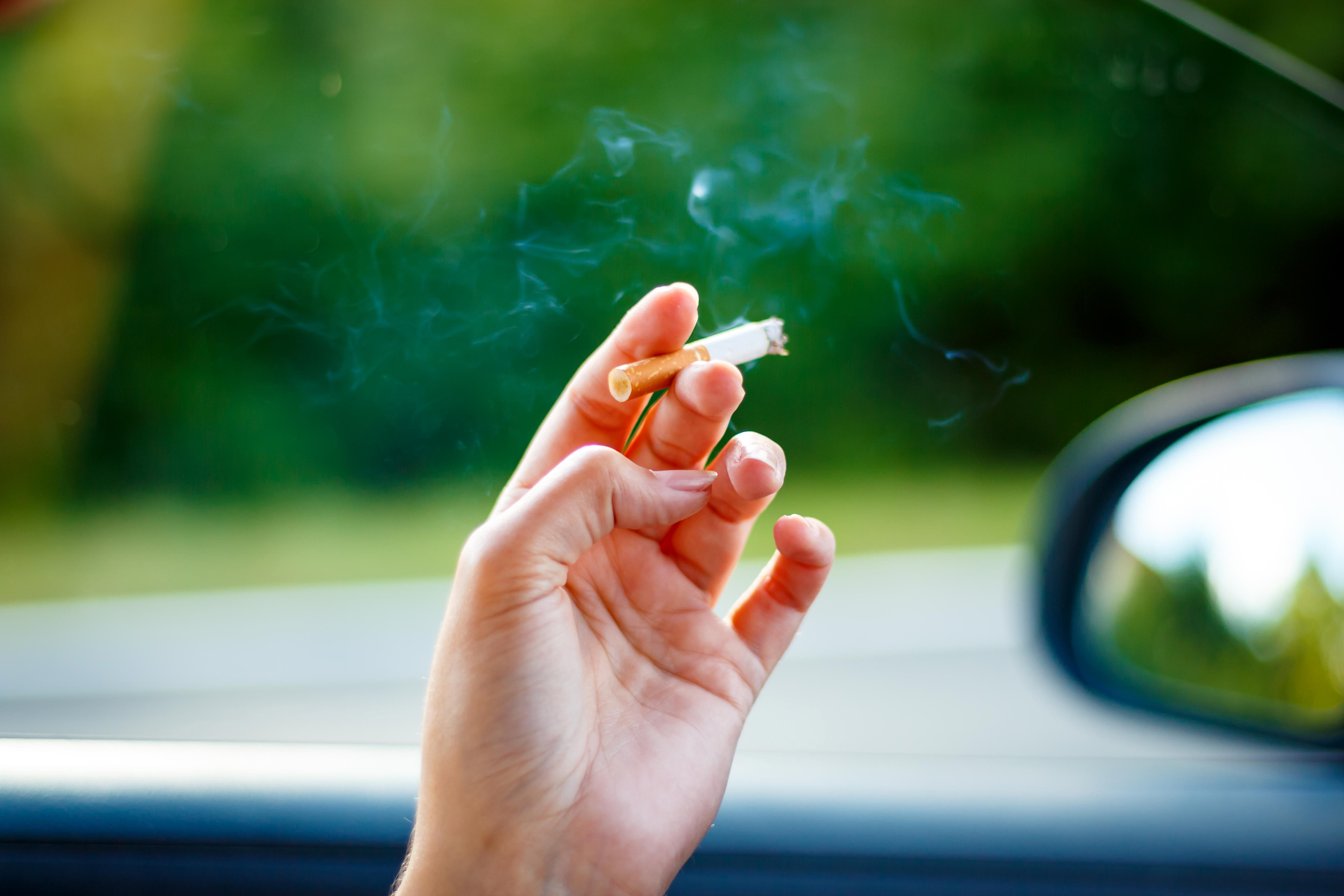Get Easy Health Digest™ in your inbox and don’t miss a thing when you subscribe today. Plus, get the free bonus report, Mother Nature’s Tips, Tricks and Remedies for Cholesterol, Blood Pressure & Blood Sugar as my way of saying welcome to the community!
How smoking stops your body from fighting off cancer

There’s some good news on the smoking front — a lot of people are quitting. According to the Centers for Disease Control and Prevention, cigarette smoking has fallen to historically low levels in the United States, with 11 percent of respondents to a 2022 survey saying they were current cigarette smokers. That’s down from 12.5 percent in 2020 and 2021 and 15.5 percent in 2016.
People quit smoking for various reasons. Many finally decide to heed the plethora of health warnings that come with cigarettes — stroke, chronic obstructive pulmonary disease (COPD), heart disease, cancer and so forth.
For my mother, it was the specter of cancer that finally persuaded her to give up her two-pack-a-day habit decades ago. She watched a heavy-smoking friend die of lung cancer and decided then and there she was done.
It would be interesting to find out if knowing exactly how smoking works to cause cancer would have any impact on people who still smoke. But first, we would have to find out more about smoking’s mechanisms inside the body…
Smoking and the “nonsense” mutation
Scientists at the Ontario Institute for Cancer Research (OICR) in Canada analyzed the DNA from more than 12,000 tumor samples across 18 different types of cancer.
This analysis showed a strong link between something called a “stop-gain” mutation in lung cancer and the mark that smoking leaves behind in DNA. A stop-gain mutation, or “nonsense” mutation, signals the body to stop making certain proteins before they are fully formed.
The researchers found the stop-gain mutations in lung cancer were especially present in genes known as tumor suppressors — which, when functioning as they should, make proteins to prevent abnormal cells from growing.
The researchers also found that the more someone smokes, the more harmful nonsense mutations are present, making cancer more complex and harder to treat.
“Our study showed that smoking is associated with changes to DNA that disrupt the formation of tumor suppressors,” says Nina Adler, a University of Toronto Ph.D. student who led the study during her postgraduate research in Dr. Jüri Reimand’s lab at OICR. “Without them, abnormal cells are allowed to keep growing unchecked by the cell’s defenses and cancer can develop more easily.”
“Tobacco does a lot of damage to our DNA, and that can have a major impact on the function of our cells,” says Reimand, an OICR Investigator and professor at the University of Toronto. “Our study highlights how tobacco smoking actually deactivates critical proteins, which are the building blocks of our cells, and the impact that can have on our long-term health.”
The study also identified other factors responsible for these stop-gain mutations. For instance, a group of enzymes called APOBEC that occur naturally in the body were strongly linked to nonsense mutations in breast cancer and other cancer types. An unhealthy diet and alcohol consumption also could cause similar damage to DNA, but more research is needed to fully explore how that works.
As for smoking, Adler says while everyone knows smoking causes cancer, being able to explain one of the ways it works at the molecular level is an important piece of the puzzle in understanding how lifestyle affects cancer risk.
Many ways to quit the habit that kills
According to OICR President and Scientific Director Dr. Laszlo Radvanyi, these new insights highlight the significant health threat posed by tobacco smoking.
“This is further proof of the immense damage smoking has on our bodies, and further evidence that stopping smoking is always the right choice,” Radvanyi says.
It’s easy for those of us who don’t smoke to tell those who do to “just quit.” But for a lot of people, it’s not that simple. My mom decided to quit cold turkey, but she did slip up several times in that first year or so. Thankfully, she kept at it until the very thought of smoking made her queasy.
If you do smoke and stopping cold seems impossible, there are many other ways you can give up the habit. Dr. Elizabeth Klodas talks about disassociation and gradual quitting here. And my colleague Joyce Hollman has a few more suggestions, including behavior counseling and nicotine replacement therapy — though you should be careful with the latter.
If you really want to increase your odds of stopping, Dr. Adria Schmedthorst recommends you find a quitting buddy. Partnering with someone who is also trying to kick the habit so that you can support each other makes you six times more likely to succeed. And you’ll feel less alone in the process.
Next, check out the dietary change that was associated with a 33 percent reduced lung cancer risk for current smokers, past smokers and non-smokers alike.
Editor’s note: Discover how to live a cancer prevention lifestyle — using foods, vitamins, minerals and herbs — as well as little-known therapies allowed in other countries but denied to you by American mainstream medicine. Click here to discover Surviving Cancer! A Comprehensive Guide to Understanding the Causes, Treatments and Big Business Behind Medicine’s Most Frightening Diagnosis!
Sources:
Study shows that smoking ‘stops’ cancer-fighting proteins, causing cancer and making it harder to treat — EurekAlert!
Mutational processes of tobacco smoking and APOBEC activity generate protein-truncating mutations in cancer genomes — Science Advances
US cigarette smoking rate falls to historic low, but e-cigarette use keeps climbing — CNN












